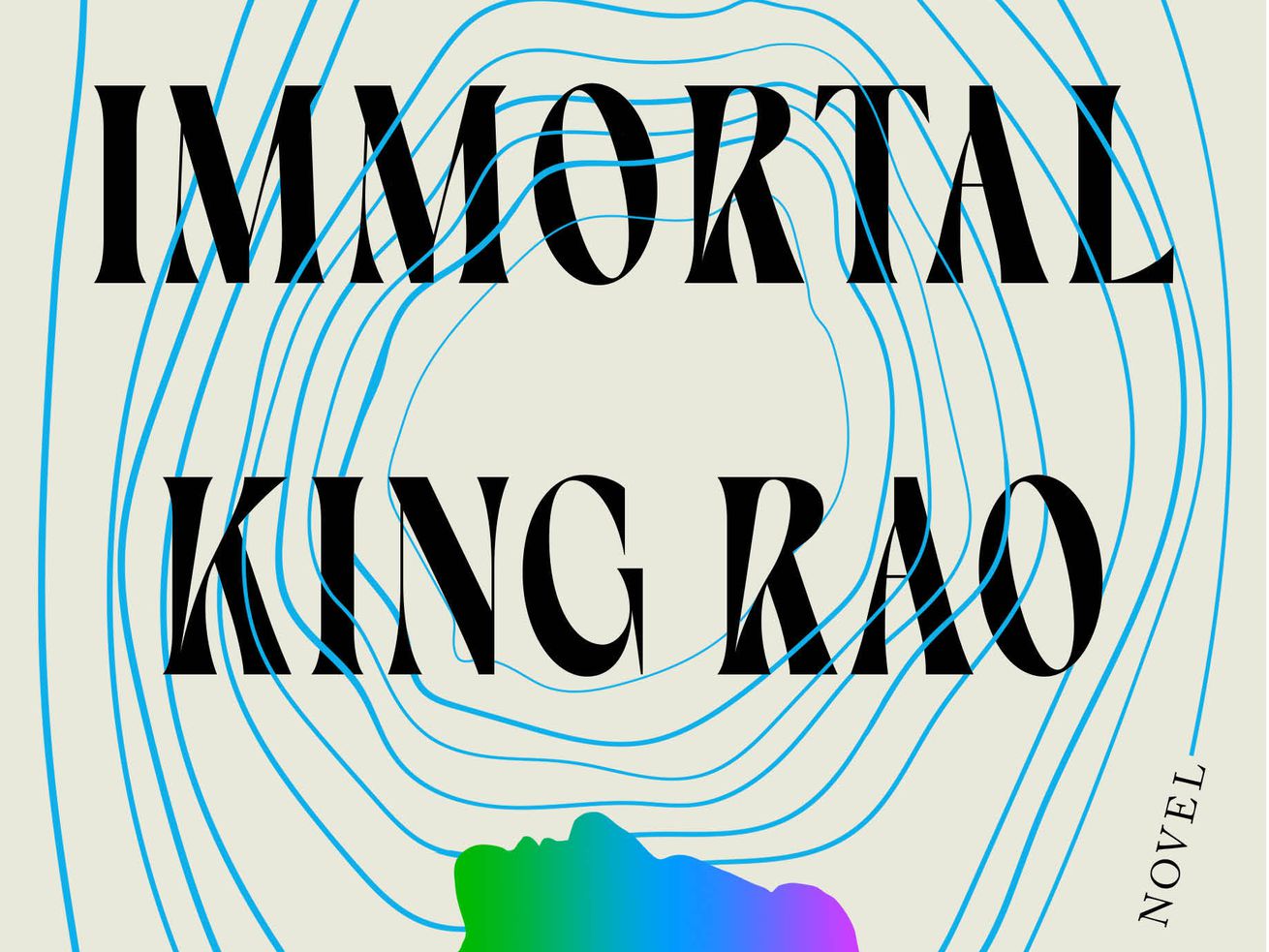A new novel paints a portrait of a world ruled by almighty algorithm.
The Vox Book Club is linking to Bookshop.org to support local and independent booksellers.
In 1600, Queen Elizabeth I granted a group of London merchants the exclusive right to British trading with the East Indies, along with the right to wage war, if necessary. In 1757, what was now known as the East India Company put the license to use, attacked, and ultimately took control of Mughal Bengal, then one of the wealthiest provinces in one of the world’s wealthiest empires.
By winning that battle, the East India Company took for itself the right to tax the citizens of Bengal. Shortly thereafter, the Hindi word for plunder, lut, entered the English language: loot.
As the East India Company took control of India, it gradually transformed itself from an early megacorporation into something closer to a government. It collected taxes, and it enforced their collection through the diligent use of a private army. It appointed governors from within its company’s ranks who were responsible for administering individual provinces.
“This would be the equivalent,” journalist Dave Roos once wrote, “of Exxon Mobil drilling for oil in coastal Mexico, taking over a major Mexican city using private armed guards, and then electing a corporate middle manager as the mayor, judge and executioner.”
It will perhaps not shock you to learn that this system of government was not received well by those forced to live under it. A corporation is accountable only to its shareholders, and its only responsibility is to safeguard their profits. Accordingly, the East India Company used its control of India not to safeguard the people who lived there but to transfer Indian wealth to British pockets at a massive scale. One economist calculated that India’s share of the global GDP went from 24.4 percent to 4.2 percent during its time under British rule.
As the tech giants and oil corporations of our own time continue to steadily amass power, more than one historian has suggested that the East India Company can provide a warning of what their future might look like.
“The East India Company — the first great multinational corporation, and the first to run amok — was the ultimate model for many of today’s joint-stock corporations,” wrote William Dalrymple in the Guardian in 2015. “The most powerful among them do not need their own armies: they can rely on governments to protect their interests and bail them out. The East India Company remains history’s most terrifying warning about the potential for the abuse of corporate power — and the insidious means by which the interests of shareholders become those of the state.”
In Vauhini Vara’s The Immortal King Rao, the East India Company provides the historical antecedent for a system of government performed by a corporate entity known only as the Board, a tech megacorporation turned dystopian state. When the Board takes control of the world, “historians later noted that there had been plenty of historical precedent,” Vara writes. “You could go at least as far back, they said, as the British East India Company.”
The Board’s first CEO, our titular King Rao, grew up in the vicious aftermath of the East India Company’s rule. He’s born in 1951, three years after the end of British occupation of India, as the country struggles to rebuild its economy after centuries of looting. King’s a member of the Dalit untouchable caste, but his family is on its way up. They own a coconut farm called the Garden, built in a delta made fertile by the East India Company’s irrigation. Now they’re leveraging their way into the middle class through both the farm and the use of the Brahmin surname Rao.
In three timelines laid out in alternating chapters, we see King’s childhood in the Garden, from his violent conception through his callow adolescence. We see him arrive in America in the 1960s to work as a software engineer, eventually becoming the Steve Jobs-like visionary at the head of a tech company called Coconut. And, in our frame narrative, we see him grow old with his daughter Athena, who serves as the loving, conflicted, betrayed narrator of her CEO father’s life story.
Under King’s rule, the Board isn’t technically in charge of the world. The almighty Algorithm King programmed is in charge of the world, and the Board merely administers its decisions.
“People’s needs — food, water, energy, Internet, roads, shelter, schools, hospitals, protection, detention,” Vara writes, “would be fulfilled not through complex taxation and appropriation, but with an innovative model where, instead of paying taxes, people would have a portion of their Capital extracted monthly, the Algo determining the most efficient investment of funds.”
The idea is that the Algorithm is supposed to be less biased than fallible human beings, more fair and just. But the Algo, programmed by fallible human beings, merely institutionalizes their bias. All existing inequalities are exacerbated, all existing poverty deepened, all existing suffering made worse. Meanwhile, climate change has become irreversible, and mankind’s time is running out.
The Immortal King Rao is not solely an economic parable. Its emotional core lies in its fraught father-daughter relationship. We see King both cherish Athena and callously use her in a bid for his own immortality, hijacking her mind to upload his own consciousness. We see Athena by turns resentful and tender, cherishing her father and repudiating his works, turning the story of his own life into a weapon against his legacy.
But what frames this novel on either end is commerce, brutal and implacable.
The legacy of the East India Company is that capitalism and colonialism are intertwined, that it may be impossible to fully disentangle them. In The Immortal King Rao, the knot only ever grows tighter.
Share your thoughts on The Immortal King Rao in the comments section below, and be sure to RSVP for our upcoming live discussion event with Vauhini Vara. In the meantime, subscribe to the Vox Book Club newsletter to make sure you don’t miss anything.
Discussion topics
- The East India Company brand name is now owned by Mumbai-born Sanjiv Mehta, who uses it to sell luxury foods and bespoke hampers out of a shop in London. Not a question, just wanted you to know.
- It’s notable that while King is our protagonist, he’s outworked in every direction by the women in his life: Margie, his wife, who is the political and design force behind Coconut; Elemen, the mother of his child, who builds a rebellion against him; and Athena, his daughter, who tells the story of his life, including all his sins. (There’s also Miss Fit, who destroys his reputation, and Minnu, King’s childhood best friend who he betrays.) How do you see the women in King’s life functioning within this novel?
- Is Minnu the most tragic figure in this whole book? It’s a tough competition.
- Both King and Athena have doubled mother figures: King is born to Radha but raised by Sita, and Athena is genetically Margie’s but carried by Elemen. What do you make of that parallel?
- We’ve got a heavily ambiguous ending here, in that it’s not clear who’s coming for Athena: the Shareholders or the Blanklanders. Do you prefer to read it one particular way or another?
- One of the final questions of this novel is what the point of human existence on earth is. Athena proffers two potential answers: First, that the point might be to make a record of our stories as proof of our existence, and second, that all of it — all of human existence — might simply “mean nothing but itself.” What do you think?
- A subquestion of sorts to the above: Athena also offers two potential parables regarding whether or not another species might even be able to understand what human life was like if they could somehow read our stories. Do you think they could?
Author: Constance Grady
Read More



